The Mentorship & Systems You Need to Build an Infinitely Scalable Agency, All In One Place.

Click the button below to see how using our Prospecting in A Box system can help you turn your agency into a 6 or 7-figure MRR asset by charging 3.4x more and retaining clients 5.5x longer than the industry average.
Get Free Access To Our Prospecting In A Box Demo, Designed To Help You 3.4x More & Work 5x Less
So, why choose Prospecting On Demand?

Let’s face it.
The era when you could satisfy clients by merely running a Facebook ad campaign and generating leads is officially behind us.
In every digital nook and cranny, there’s a new agency being born — and they are shouting 10x louder and charging 5x less than you.
This reality has commoditized the traditional “digital marketing agency” or lead vendor model, leaving your competitive edge limited to a few options:
Make outrageous promises.
Or under price the “freelancer” or agency next door.
There’s a better way, I will show you in a second but before…

Here’s What Other Agency Owners & Industry Leaders Say About Prospecting On Demand

Connor Snyder
-Story
We had our best sales month ever, our churn is down, and we’re having better experiences for our clients, the POD team has overdelivered in every single way.

Eric Haskin
-Caseflow
Watch how Eric Haskin has been able to make $300K/Quarter in MRR without having to wear all the hats in his business.

Robin Alex
-HighLevel
Seeing the camaraderie and culture they are putting together at POD, it is just phenomenal. It is amazing to see what they do to support their customers.
Cookie cutter programs are exactly what have commoditized the industry.
That’s why Prospecting On Demand addresses the challenges ingrained in every agency’s DNA by providing you with a custom-built and boutique coaching experience.
We will help you revamp the outdated “marketing agency model” that pigeonholes you as merely a lead vendor and we help you become the marketing linchpin for your clients’ business.
By doing so, we help you reclaim a competitive edge, enabling you to charge more and garner the respect your expertise merits.
You will escape the commodity trap, once and for all.
But don’t just take my word for it…

for agencies doing over $10k a month

for agencies looking to scale to 7+ figures
How Does Prospecting
On Demand Work?
We are a client success company, not a client acquisition company. We focus on white-glove personalized mentorship curated to your specific goals, needs, and obstacles. We provide you with a custom game plan to follow, and we hold you accountable every step of the way. The POD agency model is proven to scale, and with hands-on guidance from 11 world-class subject matter experts, it’s no wonder why over 1000 agencies have succeeded with Prospecting On Demand’s help.
We Help You

Book More Calls
We’ll help you build a world class outbound & inbound system that keeps your calendar stacked with prospects who are qualified and ready to spend. This system is designed to be easily automated and delegated so you don’t have to be chained to a phone or to an office chair taking calls all day.

Close More Deals
You’ll get access to the 1-Call-Close framework which cuts the length of your sales cycle by at least 45%. You will no longer find yourself chasing clients who want to “think about it.” And instead you can focus on closing long term contracts with blue chip clients. Which means higher margins and more stability in your business.

Retain Clients
You’ll not only get trained on structuring long-term deals, but you’ll also learn how to keep clients happily paying you month after month. We’ll help you build your client-success team and onboarding process, so you can deliver an exceptional experience without being trapped in delivery.
How We Do It

11 Subject Matter Experts In Your Private Slack Channel

Custom Roadmap & Gameplan

Daily Coaching + Course Material + SOPs/Swipe Files
Want a Demo?
Want to see if Prospecting On Demand mentorship is right for you? Book an agency assessment with us and we’ll
help identify and uncover where your next $100k will come from. Talk soon!
Need More Proof?
See how we have helped turn over 1000+ agencies into a 6 or 7-figure MRR asset by helping them charge 3.4x more & retain clients 5.5x longer than the industry average.
PROSPECTING ON DEMAND™ - COPYRIGHT © 2025right_now} - ALL RIGHTS RESERVED
PO Box 355, Odessa, FL 33556 I Privacy Policy I Terms of Services
PROSPECTING ON DEMAND™ COPYRIGHT © 2023
ALL RIGHTS RESERVED
PO Box 355, Odessa, FL 33556 I Privacy Policy I Terms of Services
